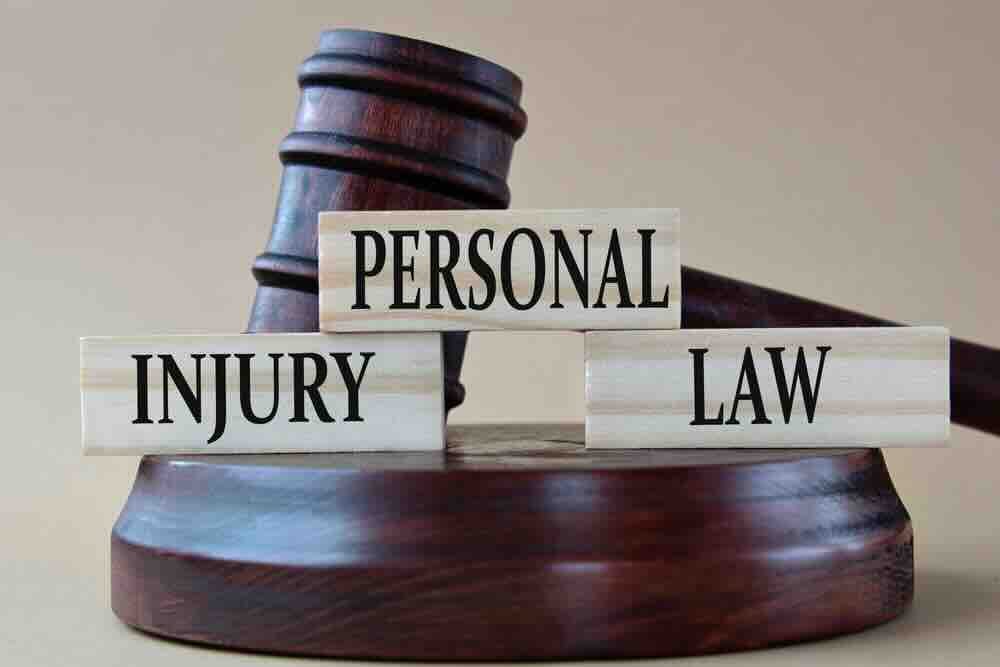by Greg Baumgartner
If you’ve been involved in a personal injury case, you might wonder why your personal injury case go to trial. After all, most personal injury cases are settled outside of court. However, certain circumstances may lead to a trial. Harris County personal injury attorney Greg Baumgartner discusses why a personal injury case may go to trial and what to expect during the trial process.
Introduction to Personal Injury
Personal injury cases involve disputes between parties over injuries caused by an accident, often resulting from someone else’s negligence. These cases can arise from various incidents, including car accidents, slips and falls, and construction site accidents. While most personal injury cases settle out of court, some may go to trial if a settlement cannot be reached. The primary goal of a personal injury lawsuit is to obtain fair compensation for the injured party’s damages, which can include medical expenses, lost wages, and pain and suffering.
Navigating the complex process of filing a personal injury lawsuit and potentially going to trial can be daunting. This is where an experienced personal injury lawyer becomes invaluable. They can guide the injured party through each step, from filing the initial claim to negotiating settlements and, if necessary, representing them in court. An experienced personal injury lawyer ensures that all aspects of the case are handled meticulously, helping the injured party obtain the maximum compensation for their injuries.
Understanding Personal Injury Lawsuits
Before we dive into why your case may be going to trial, it’s important to understand the basics of personal injury cases. A personal injury lawsuit is filed when a personal injury victim claims harm from an accident caused by another who may be legally responsible. Personal injury laws include car accidents, slips and falls, construction site accidents, and more.
In most personal injury cases, the injured party, the plaintiff, will file a claim against the person or entity responsible for their injuries, the defendant. The defendant’s insurance company will typically handle the claim and try to negotiate a settlement with the plaintiff. However, if a settlement cannot be reached, the case may go to trial.
Role of an Experienced Personal Injury Lawyer
An experienced personal injury lawyer plays a crucial role in representing the injured party in a personal injury case. Their primary goal is to protect the client’s best interests and obtain fair compensation for their injuries. From the moment they take on a case, a personal injury attorney will thoroughly investigate the accident, gather essential evidence, and build a strong case to prove the at-fault party’s liability.
Negotiating with insurance companies is a significant part of a personal injury lawyer’s job. Insurance companies often aim to minimize payouts, but an experienced lawyer can counter lowball offers and push for a fair settlement agreement. The lawyer is prepared to take the case to trial if settlement negotiations fail. They will navigate the trial process, including jury selection, presenting witness testimony, and making compelling closing arguments.
With their vast knowledge and combined experience, a personal injury lawyer can effectively manage the complexities of a trial. They ensure the injured party’s rights are protected and work tirelessly to secure the compensation they deserve for their injuries and damages. By hiring an experienced personal injury lawyer, the injured party can focus on recovery while their legal team handles the intricacies of their injury claim.
Reasons Why Your Personal Injury Case May Go to Trial
Disagreement on Liability
One of the main reasons a personal injury case may go to trial is a disagreement on liability. Liability is the person legally responsible for an accident or injury, often referred to as the “at fault” party. The plaintiff must prove negligence. Sometimes, the defendant may deny liability and refuse to accept responsibility for the plaintiff’s injuries. Texas is a proportionate responsibility state, meaning everyone’s fault is assessed. Damages are reduced if the defendant’s fault is less than 100%.
If the plaintiff is assessed more than 50% of the fault, they do not recover any money in Texas.
Disagreements over fault can lead to a stalemate in settlement negotiations and, ultimately, to a trial.
Disagreement on Damages
Another reason a personal injury case may go to trial is a disagreement over damages. Damages refer to the financial compensation the victims seek for their injuries, such as medical bills. The defendant’s insurance company may dispute the extent of the plaintiff’s injuries or the compensation they seek. Damage disputes can lead to a trial, where a jury will determine the amount of damages to be awarded.
Disagreement on the amount of damages is the most common reason a personal injury lawyer takes the case to trial.
Failure to Negotiate a Fair Settlement

Sometimes, the defendant’s insurance company may refuse to offer a fair settlement amount. The negotiation process typically begins with a demand letter outlining the plaintiff’s claims and the compensation sought. Lowball offers can occur when the defendant claims the plaintiff’s injuries are not as severe as claimed or if they are attempting to save money. The case may go to trial if the plaintiff and defendant are far apart on damages.
Conversely, some cases do not settle because the plaintiff has unrealistic expectations, and the demand made is unrealistic. Additionally, the plaintiff’s lawyer may have demanded an amount the insurance company considered excessive and unrealistic, thereby hindering negotiations.
Complex or High-Value Cases
Some personal injury cases are more complex or involve more serious damages, making it difficult to reach a settlement agreement. Both parties may feel that a trial is necessary to ensure a fair outcome in these cases. Complex cases may involve multiple defendants, extensive injuries, or disputed liability. These cases can also involve significant court costs.
High-value cases may involve substantial financial compensation, making the defendant’s insurance company more likely to contest the claim.
The more parties involved in a lawsuit, the more likely a trial will be needed.
personal injury lawyer Greg Baumgartner
What to Expect During the Trial Process
If your personal injury case is going to trial. Here are the basic steps involved in a personal injury trial:
Jury Selection
The first step in a personal injury trial is selecting a jury. The plaintiff’s and defendant’s attorneys will have the opportunity to question potential jurors and select a jury they believe will be fair and impartial.
Opening Statements
Once the jury is selected, both attorneys will have the opportunity to make opening statements. These statements provide an overview of the case and outline the arguments each side will present.
Presentation of Evidence
After opening statements, the plaintiff’s attorney will present evidence to support their case. Evidence may include medical records, illustrations, witness testimony, and expert opinions. The defendant’s attorney will then have the opportunity to cross-examine the plaintiff’s witnesses and present their evidence.
Closing Arguments
Once all evidence has been presented, both attorneys will have the opportunity to make closing arguments. These arguments summarize the evidence and attempt to persuade the jury to rule in their favor.
Jury Deliberation and Verdict
After the closing arguments, the jury deliberates and reaches a verdict. Sometimes, the judge makes the final decision instead of a jury. The verdict will determine whether the defendant is liable for the plaintiff’s injuries and the damages to be awarded.
Appeal Process
If either party is unhappy with the verdict, they may appeal the decision. Appeals can prolong the legal process and may result in a retrial.
The Importance of a Trial Attorney
If your personal injury case is going to trial, it’s crucial to have a skilled trial attorney on your side. Trial attorneys have courtroom experience and are familiar with the rules of evidence and the procedures involved in a trial. They can present evidence effectively, cross-examine witnesses, and make compelling arguments to the jury.
While most personal injury cases are settled outside of court, certain circumstances may lead to a trial. Disagreements on liability or damages, failure to negotiate a fair settlement, and complex or high-value cases are why a personal injury case may go to trial. If your case is going to trial, having a skilled trial attorney on your side is important to ensure a fair outcome.
Contact the Personal Injury Trial Law Firm in Houston at Baumgartner Law Firm for Help!

The Baumgartner Law Firm was founded in 1985 to provide serious lawyers as advocates for personal injury victims.
Contact the Houston personal injury law firm of Baumgartner Law Firm at (281) 587-1111.
Baumgartner Law Firm
6711 Cypress Creek Pkwy
Houston, TX, 77069
Related personal injury trial resources:
Steps for Filing a Personal Injury Lawsuit in Texas
How Much Is My Personal Injury Case Worth?













